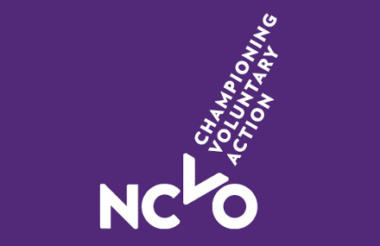It is not necessary to give volunteers the same legal protections against sexual harassment that employees have, NCVO has said in a response to a government consultation.
Writing in a blog post for NCVO's website, Elizabeth Chamberlain explains the umbrella body's submission to the Government Equalities Office’s consultation. She says that while there are some areas where changes are needed, bringing volunteers within the scope of the Equality Act could create other problems.
The consultation asks whether the current laws on protecting people from sexual harassment in the workplace are effective, and sets out options for change.
One of the key proposals is to give volunteers the same Equality Act protections against sexual harassment that employees have, with the same recourse to employment tribunals.
Chamberlain said: “We all strongly welcome and support the government’s condemnation of sexual harassment – and harassment of any sort – in the workplace and outside it. More than that, we want to be active participants in tackling sexual harassment in all its forms.
“But the question of extending employment rights needs careful consideration, because volunteers are different to employees.
“The message we have heard loud and clear from our members is that volunteers deserve to be treated with respect and to be free from sexual harassment, but that this should not be achieved by bringing them within the scope of the employment rules in the Equality Act. This has been the conclusion of a number of previous consultations too, in particular the Volunteer Rights Inquiry.”
NCVO members mostly said changes to the legal framework are not the right way to strengthen protections for volunteers, and that they could cause other problems, namely:
- These legal changes would shift the focus of volunteer managers from creating positive cultures to simply meeting a minimal requirement.
- Charity resources would need to be diverted from continuously improving volunteering programmes to creating compliance mechanisms for the new rules.
- The suggestion that any legal protection should only cover formalised volunteering arrangements, and not ad hoc or informal volunteering, could create different categories of volunteers, each being treated differently.
“Developing a culture of safeguarding and encouraging good practice are a far more powerful approach,” said Chamberlain.
NCVO: ‘We think interns should have the same equality protections as employees in the workplace’
The umbrella body has said that where changes to the law are needed are where there is a power imbalance at play.
“Any situation where there is a harmful imbalance of power between an organisation and an individual should be addressed as a priority. One group that is not covered at the moment is unpaid ‘interns’ at commercial and political organisations.
“If sexual harassment does occur, these workers may be less likely to report it, either because they do not know what their rights are or because their position, both legally and in the organisation, is more precarious than that of an employee. Nor do they have the same freedom as a volunteer to walk away, because this could jeopardise their career prospects.
“We think interns should have the same equality protections as employees in the workplace so we support the proposal that the law in this area should be strengthened. If there are any interns that currently do not meet the statutory criteria for workplace protections under the Equality Act, further consideration is necessary to best ensure this group is protected,” said Chamberlain.
Volunteers are different and charities already want to create ‘supportive and welcoming environments’
But NCVO said volunteering is different to employment and internship, as the power dynamic is less imbalanced. “Volunteers do not have their job or career bound to the role and are under no obligation to stay – in fact organisations have to work hard to keep their volunteers happy.”
Chamberlain said: “Charities want to create positive, supportive and welcoming environments for volunteers. And it’s in their interests to make sure they do, otherwise they simply wouldn’t be able to carry out their work. Most charities, including the largest, depend on the contribution of community-based volunteers.
“It’s the nature of volunteering that volunteers are free to walk away at any time. So to retain them, charities have to create an encouraging climate and ensure volunteers are treated respectfully.
“A simpler, more proportionate and quite possibly more effective method of ensuring safe environments for all volunteers would be for government to support charities in their continuous journey of self-improvement in this area, so anyone who volunteers in any way and in any place is protected from sexual harassment and discrimination,” she added.
Small Charities Coalition: ‘We have proposed a middle ground’
The Small Charities Coalition also responded to the consultation. Rita Chadha, chief executive, said: “At the Small Charities Coalition we have surveyed our members on how small charities and community groups should address accusations of sexual harassment by volunteers.
“Whilst there was unanimous support for safeguarding volunteers from all forms of discrimination not just harassment, there is real and legitimate concern amongst some of our 9000+ members that any attempt to manage this through the courts (either through Employment Tribunals or County Court) is going to place small charities and especially trustees under yet more pressure, often with dwindling resources.
“In the Small Charities Coalition's response to the consultation, we have proposed a middle ground, principally that all charities should report annually to the Charity Commission about all they are doing to stop discrimination and harassment. Charities are quite rightly proud of their tradition and reputations, identifying inappropriate practice and naming and shaming by the Commission would have a considerable impact, and would also serve to allow prospective volunteers to check the credibility of organisations they may wish to volunteer for.
“If the Charity Commission really wants to be helpful to charities, acting as the stewards who oversee our collective commitment as a sector to end harassment and discrimination would be a useful and welcomed contribution.”
|
Related articles












